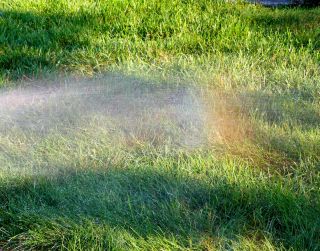July 09, 2007
Unbottled Water

Weren't we just ranting about bottled water a few days ago over here at Dakota?
Well, wouldn't you know it, Charles Fishman has done a thoroughly wonderful piece on the subject entitled "Message In A Bottle".
Bottled water is the food phenomenon of our times. We--a generation raised on tap water and water fountains--drink a billion bottles of water a week, and we're raising a generation that views tap water with disdain and water fountains with suspicion. We've come to pay good money--two or three or four times the cost of gasoline--for a product we have always gotten, and can still get, for free, from taps in our homes.When we buy a bottle of water, what we're often buying is the bottle itself, as much as the water. We're buying the convenience--a bottle at the 7-Eleven isn't the same product as tap water, any more than a cup of coffee at Starbucks is the same as a cup of coffee from the Krups machine on your kitchen counter. And we're buying the artful story the water companies tell us about the water: where it comes from, how healthy it is, what it says about us. Surely among the choices we can make, bottled water isn't just good, it's positively virtuous.
Except for this: Bottled water is often simply an indulgence, and despite the stories we tell ourselves, it is not a benign indulgence. We're moving 1 billion bottles of water around a week in ships, trains, and trucks in the United States alone. That's a weekly convoy equivalent to 37,800 18-wheelers delivering water. (Water weighs 81/3 pounds a gallon. It's so heavy you can't fill an 18-wheeler with bottled water--you have to leave empty space.)
Meanwhile, one out of six people in the world has no dependable, safe drinking water. The global economy has contrived to deny the most fundamental element of life to 1 billion people, while delivering to us an array of water "varieties" from around the globe, not one of which we actually need. That tension is only complicated by the fact that if we suddenly decided not to purchase the lake of Poland Spring water in Hollis, Maine, none of that water would find its way to people who really are thirsty.
A chilled plastic bottle of water in the convenience-store cooler is the perfect symbol of this moment in American commerce and culture. It acknowledges our demand for instant gratification, our vanity, our token concern for health. Its packaging and transport depend entirely on cheap fossil fuel. Yes, it's just a bottle of water--modest compared with the indulgence of driving a Hummer. But when a whole industry grows up around supplying us with something we don't need--when a whole industry is built on the packaging and the presentation--it's worth asking how that happened, and what the impact is. And if you do ask, if you trace both the water and the business back to where they came from, you find a story more complicated, more bemusing, and ultimately more sobering than the bottles we tote everywhere suggest.
Do not lose heart, tap water is regaining it's snob appeal, as the green movement sweeps into some of America's finest restaurants.
Bottled water's swift transformation from glass-encased luxury good to déclassé, plastic-wrapped menace was entirely predictable. Over the past century, we've seen numerous examples of products that, so long as they were available only to a select few, were viewed by those elites as brilliant, life-improving developments: the automobile, coal-generated electricity, air conditioning. But once companies figured out how to make them available to the masses, the elites suddenly condemned them as dangerous and socially destructive.So long as only a few people were drinking Evian, Perrier, and San Pellegrino, bottled water wasn't perceived as a societal ill. Now that everybody is toting bottles of Poland Spring, Aquafina, and Dasani, it's a big problem.
There will be water tastings at spas. New York, a city with the "champagne of tap water" running through its pipes, is about to begin a tap water promotion campaign.
So whatever you do this summer, help keep your carbon footprint dainty -- don't get caught sipping that tacky bottled water-- ask for tap.
Photo note: unbottled water - (don't even get us started about wasting water on lawns, impending water wars or
rain water harvesting )